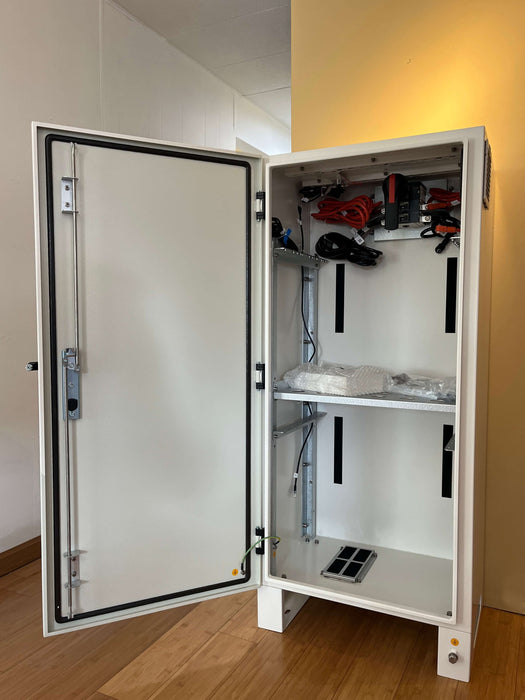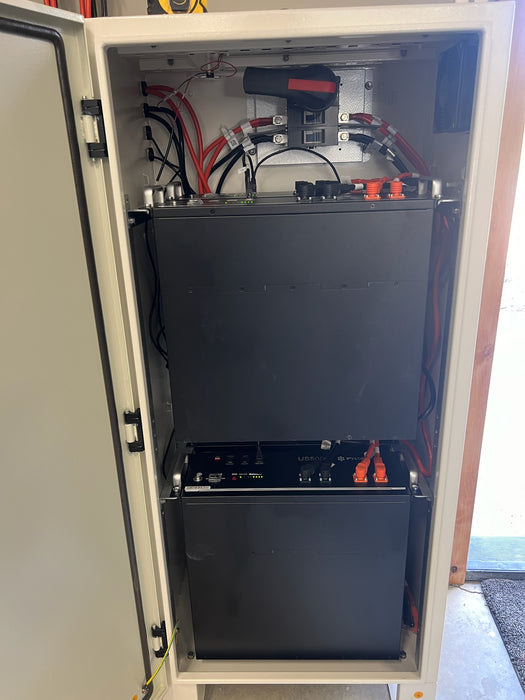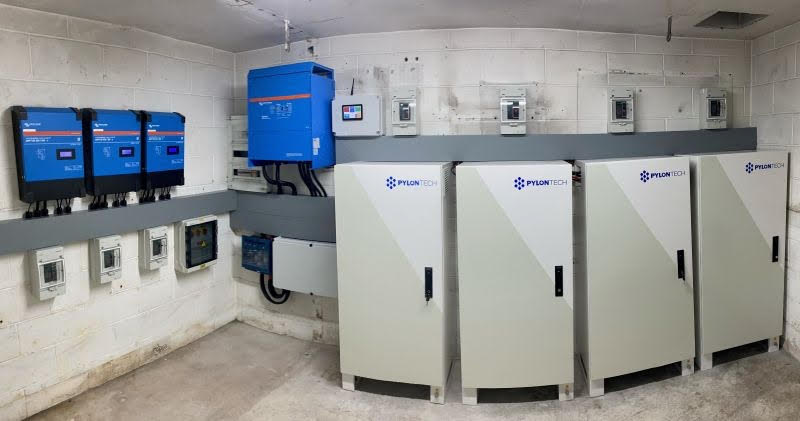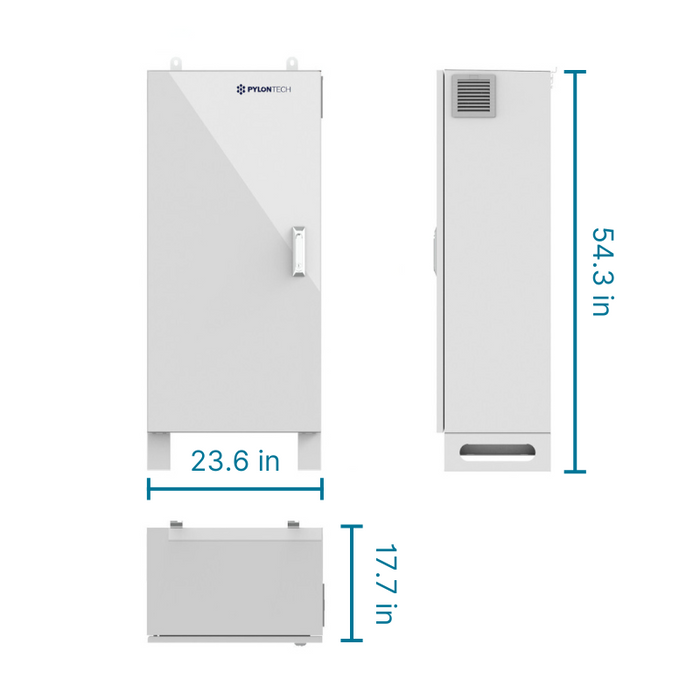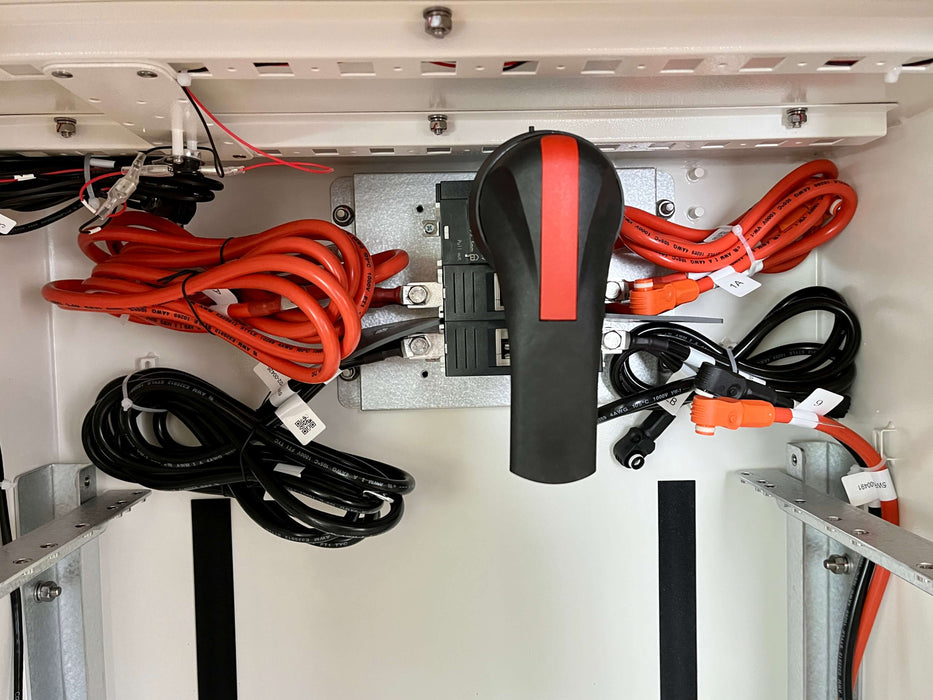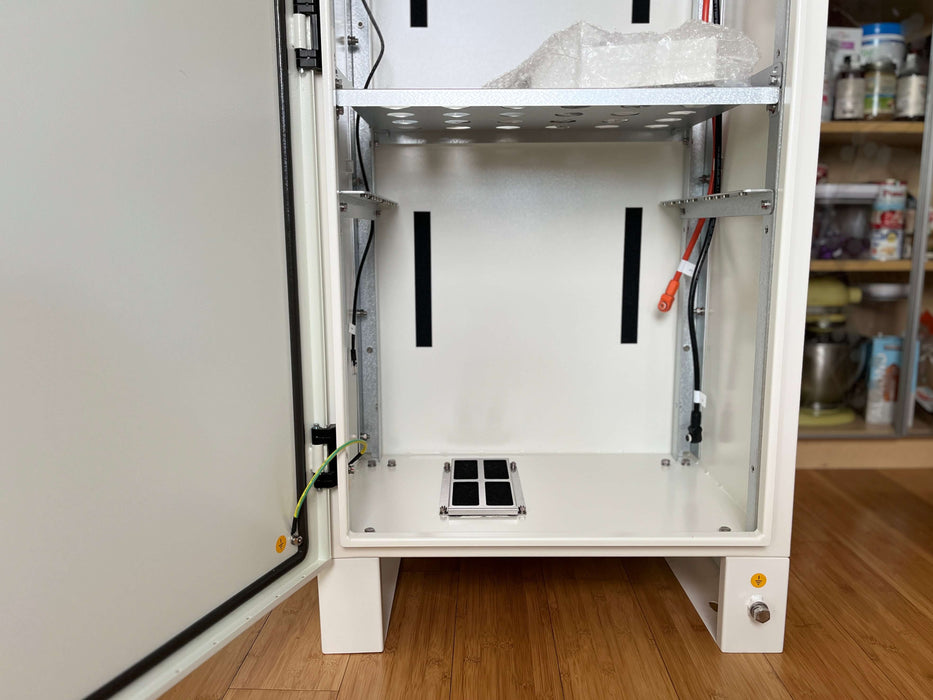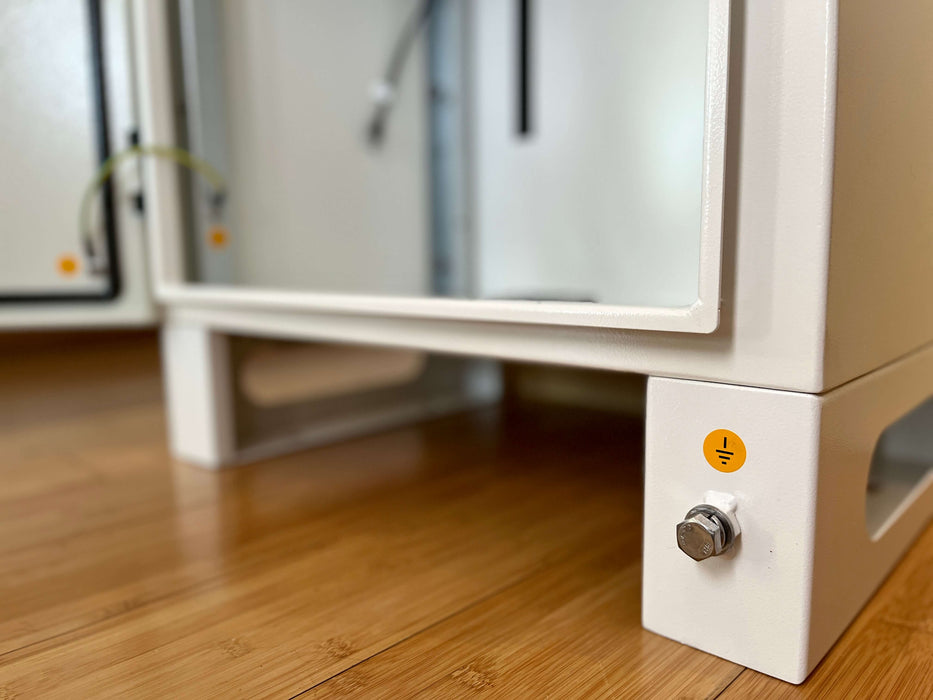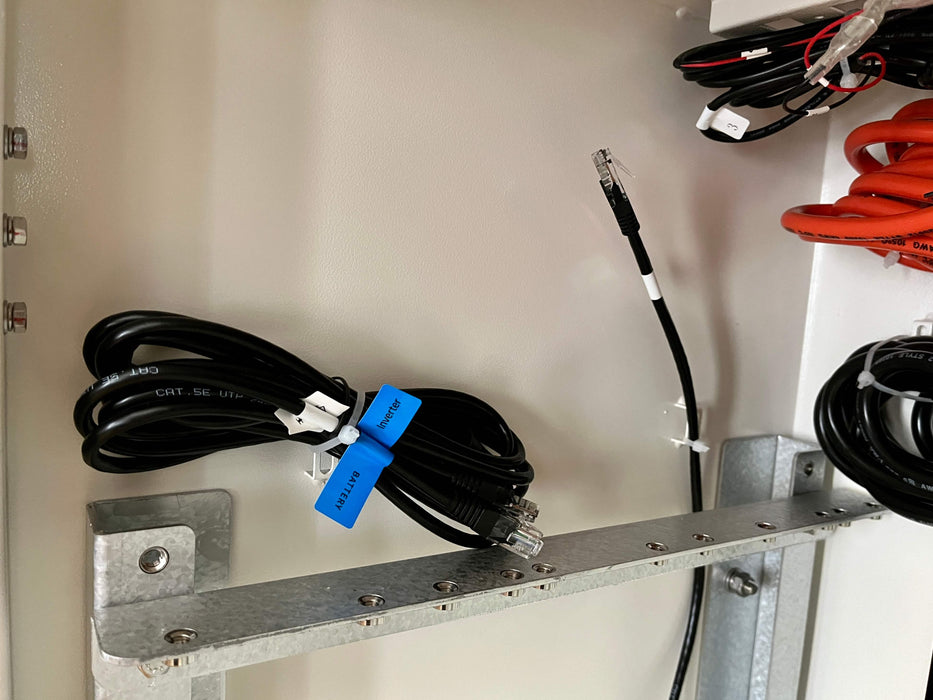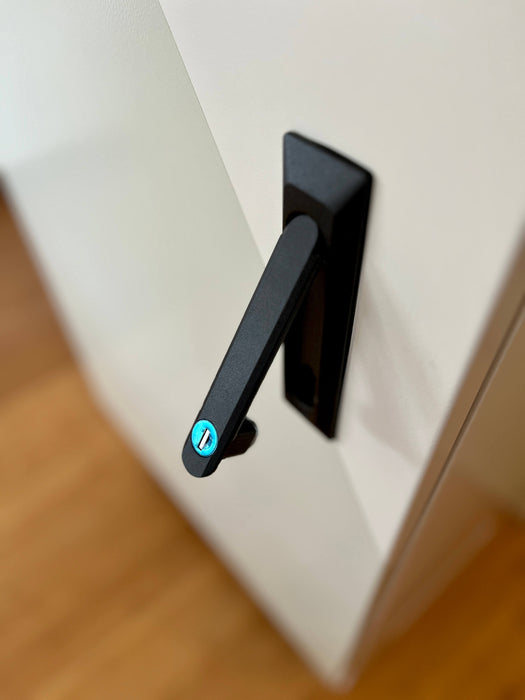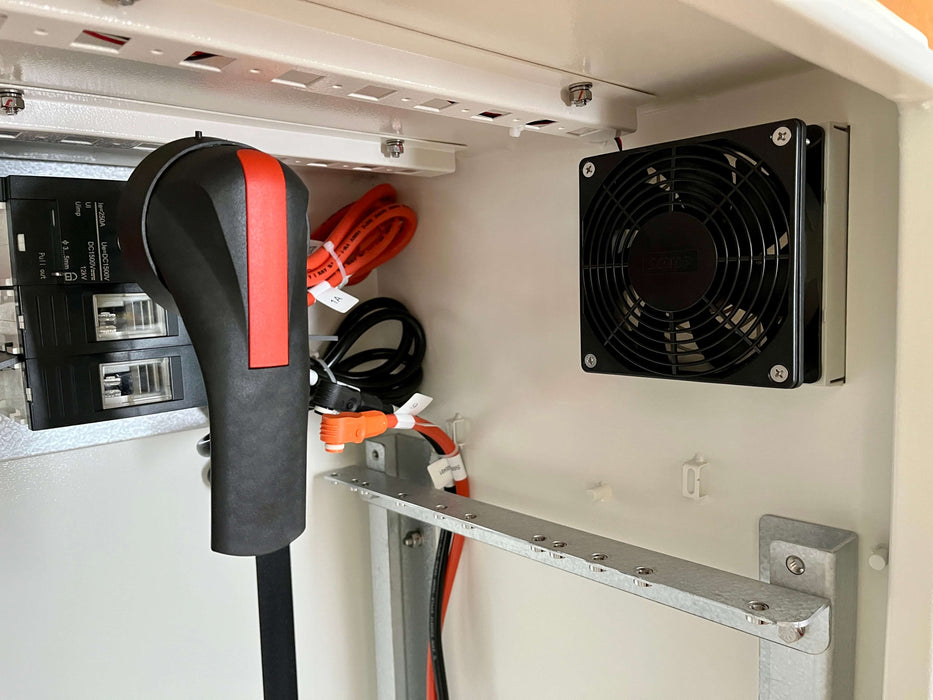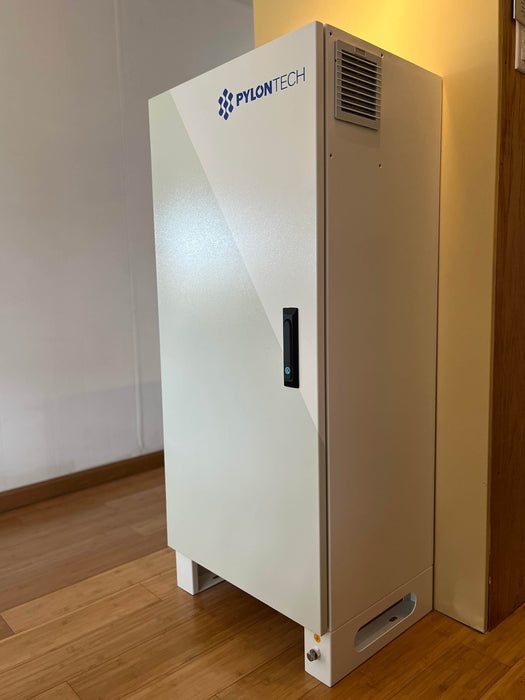
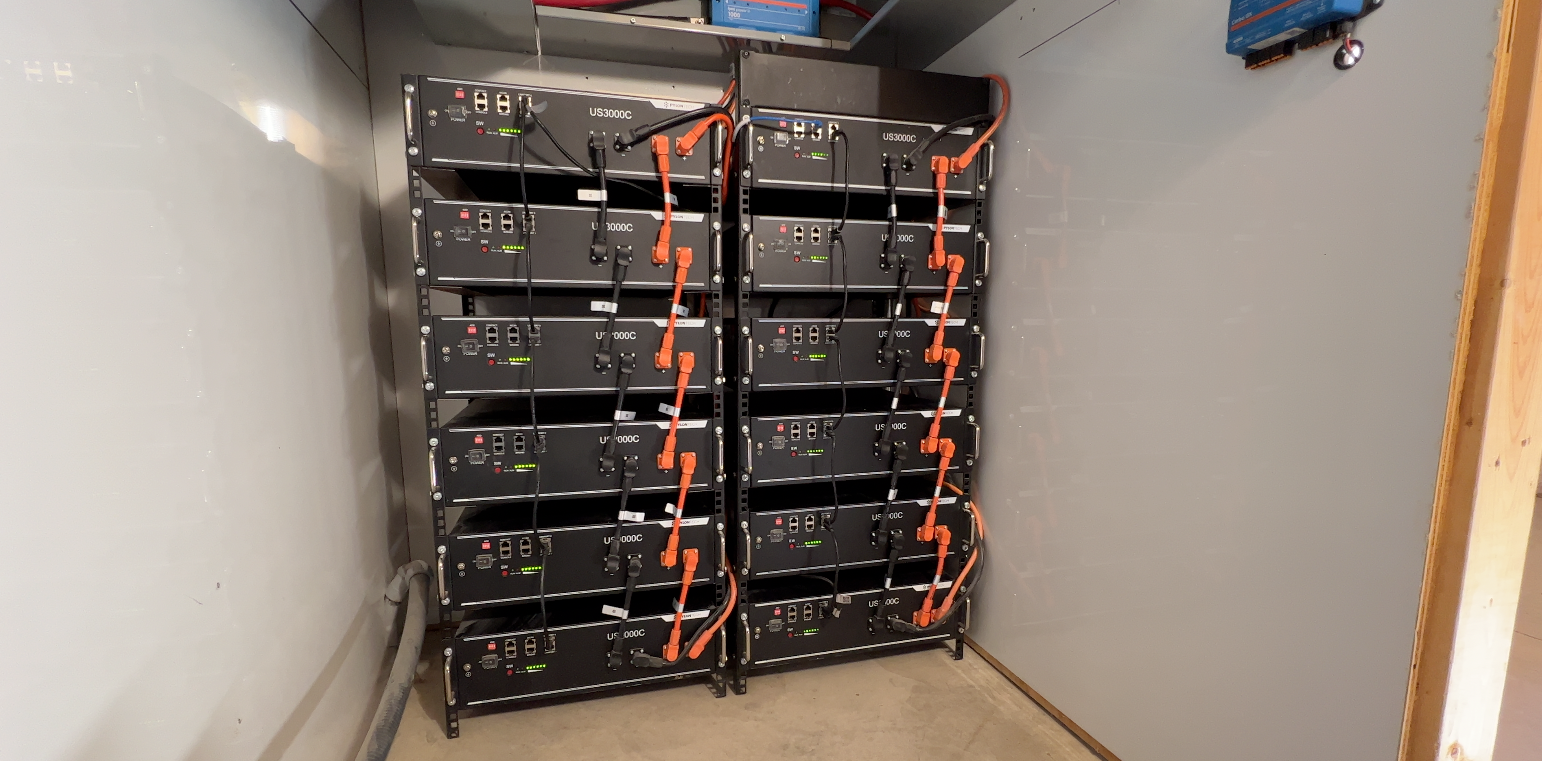
Pylontech Racking, Accessories, and Enclosure Options
Pylontech’s 24V and 48V rack-mounted batteries offer incredible flexibility for system owners. Cabling is straightforward, and thanks to Pylontech’s advanced battery management system (BMS), it’s very easy to expand battery capacity later (read Adding Capacity to a Pylontech Lithium Battery Bank). In this article, we’ll quickly introduce the main accessories available from Pylontech that make system installation a breeze.
Racking Options for Pylontech Batteries
Pylontech rack mount batteries are compatible with standard 19” server racks, which can be easily obtained or built.
A handy accessory available for purchase from Pylontech is the clamping brackets, which allow you to stack up to 3 batteries with appropriate airflow.
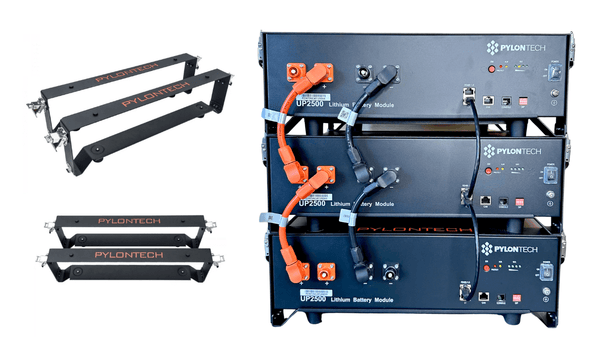
Indoor-Outdoor Energy Storage Cabinet
Pylontech's IP55-rated Low-Voltage Energy Storage Cabinet provides a safe, modern, and fully protected enclosure for Pylontech batteries. Designed with internal 19’’ racking, this cabinet accommodates up to:
- 4 x US5000 48V LiFePO4 batteries (19 kWh of power)
- 6 x UP2500 24V LiFePO4 batteries (16.8 kWh of power)
Compact in design, this cabinet can be installed inside a utility room, garage, or living space. It can also be connected to an existing off-grid solar or grid-connected system by installing cable seals anywhere on the cabinet that suits your installation.
For more information on this battery enclosure, read What’s Inside Pylontech’s Battery Storage Cabinet?
Dimensions: 17.7 in (L) x 23.6 in (W) x 54.3 in (H)
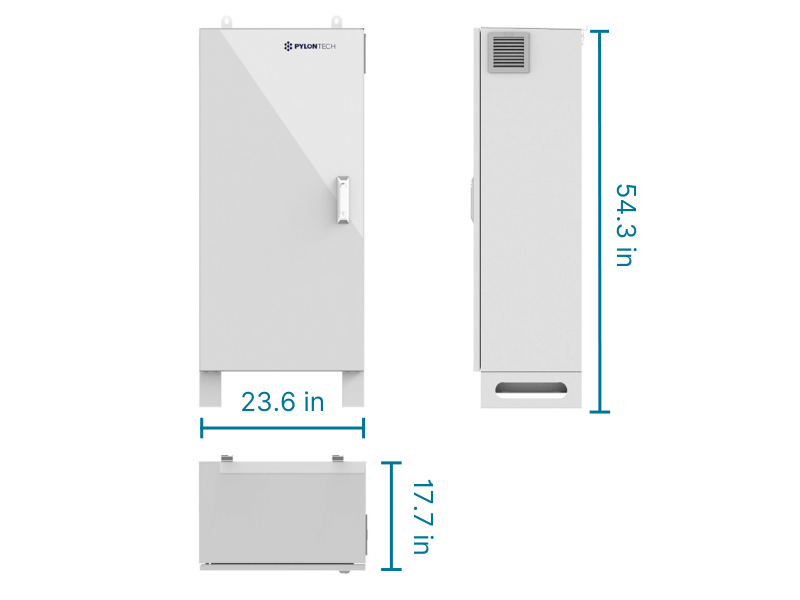
More Communication, More Power: The LV Combiner Hub
The Pylontech Low-Voltage Combiner Hub is designed to expand the capacity of a Pylontech battery bank beyond the default single-string capacity of 16 batteries. Using a Low Voltage Combiner Hub, we can connect up to 96 Pylontech batteries to create a fully communicating 460.8 kWh power bank.
In the video below, we provide a comprehensive guide on how to set up the Low-Voltage Hub and discuss the advantages this product offers.
When paired with a Victron GX device, the LV Hub allows us to aggregate critical battery health and performance data to Victron’s Remote Management platform (VRM).
The Pylontech Low-Voltage Combiner Hub is compatible with Pylontech's US3000C and US5000 batteries, both of which are known for their superior performance and durability. By purchasing the Low Voltage Hub from Intelligent Controls, we will ensure that the product’s firmware is up to date and that all necessary cables for the installation are included.
For more information on the LV Hub, read How Many Pylontech Batteries Can Be Connected Together?
What is included with each Pylontech battery?
Each US5000, US3000C or UP2500 comes with three things:
- A pair of short battery connector cables, used to connect each battery in parallel. They are rated for 120 Amps and connect via a secure, vibration-proof Amphenol RADSOK, eliminating the need to screw down battery terminals and protecting any exposed metal on the front of the battery.
- A short battery communication jumper
- Grounding wires
What’s not included and must be purchased separately is a Pylontech Cable Kit. If you have two batteries, you will need one cable kit. If you have three batteries, you will need two cable kits and so on. The Pylontech Cable Kit includes:
- A battery-to-battery communication cable
- A battery-to-inverter communication cable to establish closed loop communication with the inverter
- Two 6.5 ft long End runs, rated for 120 Amps.
Note: If connecting to a Victron Energy inverter, you will to purchase a VE.CAN to CAN-bus BMS type A cable.
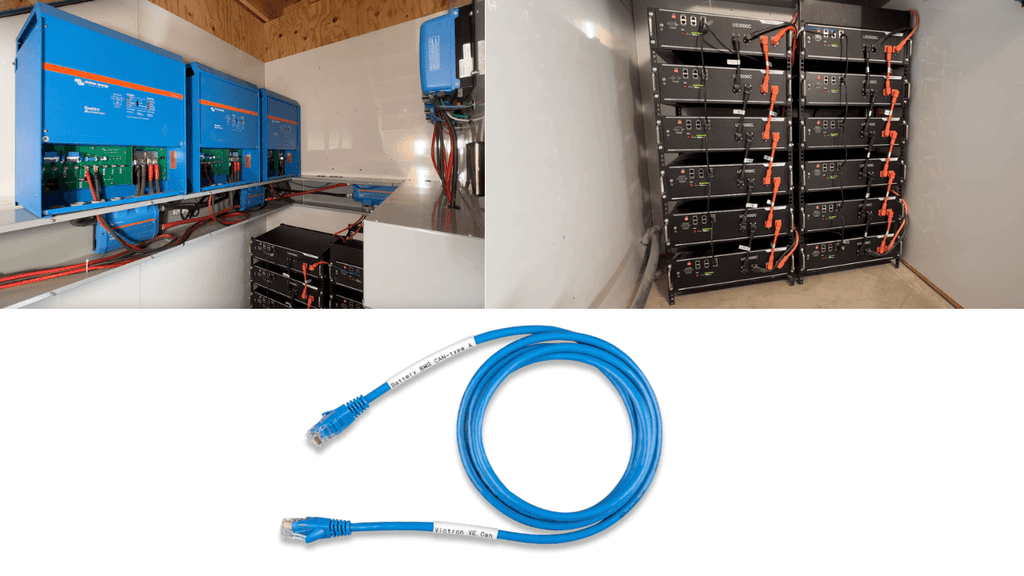
Have questions for our team about Pylontech battery options and accessories? Send us a message.
Related Articles:
Bad, Better, Best: Battery-Inverter Communications & Compatibility
Active Management: Expect More From Your BMS


